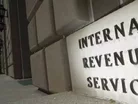How Construction Companies can Properly Account for Fringe Benefits

Let’s start with the basics: according the Internal Revenue Service (IRS), a fringe benefit is “a form of pay for the performance of services.” In layman’s terms, a fringe benefit is an extra benefit that goes beyond an employee's salary, for example, a company car or meals. In the IRS’s eyes, some of these fringe benefits should be considered part of an employee’s income and are thus taxable.
Unfortunately, many employers and their employees are misguided about which fringe benefits are taxable as compensation to the employee, and the rules can be complicated.
For example, auto and fuel reimbursements, which are very common in the construction industry, are generally considered taxable to the employee. But if the employer adopts an “accountable plan”, then many fringe benefits, including auto, fuel and meal allowances, may be tax-free to the employee.
In order to meet the tax-free criteria, the employer must establish an “accountable plan” with the following elements:
- The expense must have been paid or incurred while the employee was performing services for the employer;
- The employee must adequately account to the employer for the expenses;
- If the amount of allowance or reimbursement by the employer exceeds the amount of expenses that are reported to the employer, then the employee must refund the excess amount to the employer;
- If the employer does not establish and properly maintain an accountable plan, then the IRS will deem those reimbursements as taxable to the employee.
Misclassifying and failing to claim fringe benefits properly can be costly. The IRS will re-characterise the fringe benefits as compensation, subject to payroll taxes. The employer will receive a bill from the IRS for the employer’s match of payroll taxes.
The W-2s, W-3’s and 941’s will need to be amended by the employer, and the employee will have to amend his or her individual tax return. The process, especially if an outsourced payroll company like ADP or Paychex is involved, can be time-consuming, cumbersome, and expensive. And while the IRS may waive the penalty, they will not waive the interest.
What about the employers who give 1099’s to their employees who receive fringe benefits?
In many cases, the payment for fringe benefits is paid to the employee as a separate check. As a result, the payroll department is not aware of the payment when they prepare W-2s and 941s and omits the payment from the payroll filings.
In an effort to be compliant, many employers will issue the employees a separate 1099 for the value of the benefit. The IRS will consider the reimbursement to be a “nonaccountable” benefit, and will re-characterise the benefit under the W-2 rules for compensation as discussed above. Providing a 1099 as a means of accounting for the taxable portion of fringe benefits is not permitted under the IRS rules.
While a CPA can help you identify which benefits are taxable, all contractors that receive or dole out any type of “perk” should follow these best practices:
1. Keep detailed records
Employees must keep records of “who, what, when, where, and how much.” For example, for mileage, employees should keep track of where they went, what they did (or the purpose of) the trip, when they went, and how many miles they traveled to and from the destination.
2. Submit expense reports frequently.
Because the accuracy and detail of records is paramount, employees should submit expense reports promptly and frequently. Weekly expense reports, for example, are much more likely to be accurate and complete, while quarterly reports will typically be prepared at the last minute and omit important details.
3. Keep records for at least three years.
If the IRS performs an audit, they may request documentation on fringe benefits for the past three years. In many cases, simply supplying the proper documentation will be the first and final step of the audit. Keep your records for at least three years so you’ll be prepared to comply with any request.
Ensuring that fringe benefits are documented and proper accounting treatment is in place should be a priority for employers and employees in the construction industry, as the IRS is showing no indication of decelerating its strict enforcement of fringe benefit rules.
A tax professional and licensed CPA with experience in the construction industry can answer questions and help you make adjustments for total compliance with the IRS’s standards.
Hollis Davis joined the CST Group in 2014 when her private CPA practice merged with the firm. From her office locations in Virginia Beach, VA and Palm Beach Gardens, FL, Hollis specialises in working with businesses in the construction industry, providing advice on accounting, taxation, and business transition issues.
She also provides consulting services to high-net-worth individuals, assisting with federal and state income tax matters. Prior to founding her own CPA practice in 2001, Hollis was a founding partner at Regan Russell Schickner & Shah, CPAs.
Hollis is a licensed CPA in the Commonwealth of Virginia and in the State of Florida. In 2013, she was recognised as a Super CPA in the Assurance category by the Virginia Society of Certified Public Accountants (VSCPA) and Virginia Business Magazine.
She holds a Bachelor of Science degree in Accounting from George Mason University.
Memberships:
American Institute of Certified Public Accountants (AICPA)
Virginia Society of Certified Public Accountants (VSCPA)
Florida Institute of Certified Public Accountants (FICPA)
